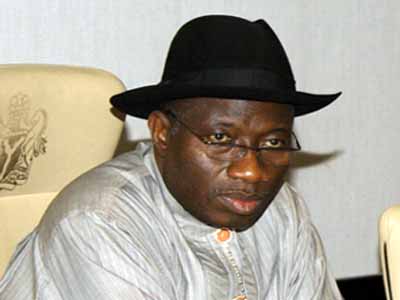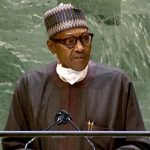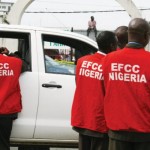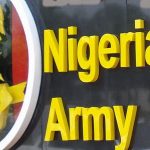Opinion – Jonathan’s Exit: The Gains And The Pains
Articles/Opinion, Latest Headlines Wednesday, June 24th, 2015
By Muhammad Ajah – The immediate past President Goodluck Ebele Azikiwe Jonathan was a human being with all the components of human mind. Since he eventually handed over the nation’s power after years of his leadership as the president of Nigeria, Nigerian people have been heaving signs of relief from a regime described by many political analysts as the most corrupt period in the leadership in the history of Nigeria. The military juntas, a lot of Nigerians believe comparatively were better days because at least every Head of State was in control of his government and could give simple account for his actions. No phrase can depict this torturous period than “years of political, economic and communal mayhems.”
The repugnant feelings of Nigerians were palpable on their faces on the handover day across the country. His two main parting gifts for Nigerians, acute fuel scarcity and the devaluation of naira/cleaning up of the nation’s treasury pricked the spirit of the citizenry. All the sectors of the economy were nearly in total disarray. Nigerians themselves were fixed in utter confusion, apparently expecting the worse to happen anytime before the handover. Grievances over the outcomes of the April general elections on the part of some of his party men raged and the handover ceremonies in some states of the federation were charades. Many were sure that if it were possible for Dr. Azikiwe Jonathan to eschew handover prelims and ceremonies, he would have done. Members of the leadership of his party PDP exposed these intrigues in their post election quagmire.
Many governors of his party, PDP, who were to handover to APC governors on Friday 29th May, 2015 were reported to have shunned the swearing-in ceremonies in their states, an action that exposed their disillusionment and power-mongering thirst of his government. One or two cases were reported where PDP governors were lynched by angry youths of their states who were targeting any chance to exert physical revenge on their outgoing governors. However, every Nigerian including most of those in the then Jonathan’s government knew that the country was heading for a disaster if Jonathan had continued to rule Nigeria. The international community watched events in Nigeria with awe and consternation. It was clear that all was not well with Nigeria.
There were huge debts and civil servants were owed for several months. It was alleged that some governors did not pay their civil servants for months, having preferred to use the money to campaign for their candidates of choice or for themselves. President Buhari is very worried of this. “I hope we are starting and this culture of 100 days in power is bringing so much pressure, with the treasury virtually empty, with debts in millions of dollars, with state workers and even federal workers not paid their salaries. People could take to the streets if nothing is done”, he lamented at the maiden meeting he held with the State House Press Corps at the Press Gallery of the Presidential Villa, Abuja.
Again, the leadership of ex-President Jonathan was, many Nigerians believe, more painful to the Nigerian populace than gainful. “Jonathan’s rule brought pains to more Nigerians than gains, except for the influential and the rich and those close to those in power. It were years of wonderful achievements in poverty growth, youth restiveness and unemployment and exploitation, political lust escalation, human rights violation, educational devaluation, moral decadence, indiscipline permeation, corruption legalization, Ijawnization of the federal polity and executive lawlessness. I can say more”, an educationist, Taiwo Adesina, proclaimed in a press encounter.
Some observers have also maintained that the last policies embarked upon by Dr. Jonathan did not only portray him as one leader who was insensitive to the plights of the nation’s populace, but as one who wanted to create confusion and burdens for his successor. With the non-statutory appointments made at the 11th hour, award of contracts to cronies and many unanswered questions about the actual state of the nation, Dr. Jonathan could not dispassionately prove the statesmanship spirit allocated to him by some past leaders. He once lamented that some Nigerian statesmen were acting like touts when Northern Elders Forum visited him.
This further espoused the realities on ground. Daily Trust of Monday June 22 reported that Goodluck Jonathan awarded 72 licences for radio broadcasting to his political associates and friends few weeks before the end of his administration using irregular procedures and documentation. Beneficiaries, according to the daily, included Chief Bode George, Ibadan-born industrialist and chairman of the finance committee of the Goodluck Jonathan Campaign Organization, Otunba Funso Lawal, an oil mogul and a friend to the former president, Chief Emeka Offor, former National Chairman of the PDP Chief Barnabas Gemade, national coordinator of the Transformation Ambassadors of Nigeria (TAN) Patrick Ubah as well as some former ministers Olajumoke Akinjide, Labaran Maku and a close associate of the former governor of Bayelsa state, Dieprieye Solomon P. Alamieyeseigha, Mr. Ehigie Edobor Uzamere.
“The last minutes of Jonathan’s government were uncontrollable. Things became harder. It was as if the man was not happy contrary to his claim of conceding defeat. He nearly sold Nigeria out to his loyalists. If investigations are carried out, it will be found that he sold some of the nation’s properties to himself by proxies. Nigerians are paying through their nose as prices of transport fares, food stuffs and everything have soared. All the sectors of the economy have gone worse.” Ezinwa Okoro opined.
Analysts believe that the burdens which Jonathan has left behind for Muhammadu Buhari are enormous. There was strong skepticism over the privatization of the nation’s properties. “Selling off almost the country’s properties before leaving office did not only portray Dr. Jonathan as a ruler who did not consider the interests of the people, but also revealed his intention for not having put them in order for public utilization despite the huge revenues the country earned during his regime”, a university student, Solomon Bello stated.
Nigerian labour market swelled and indirectly aided the increase in crime and vices in the society in the quest for survival. Strike actions by the labour and the civil society permeated, power generation fell; road network, its maintenance and the responsibility of FERMA troubled a lot of the people. Means of transportation and the transportation system were overblown using the media. Agriculture and housing policies which are the primary needs of man were not encouraging. The fight against corruption through the Economic and Financial Crimes Commission (EFCC) and the Independent Corrupt Practices Commission (ICPC) was comatose because many Nigerians and international observers believed that the fight was either not existent or was targeted at some perceived political adversaries. If stealing was not corruption in Jonathan’s perception, then EFCC and ICPC existed without function throughout his regime.
The most troublesome included the loss of peace and love in the minds of Nigerian and especially in the violent area of North East and the Nigerian borders. Many Nigerian lives were lost in communal wars, cult related attacks and counter attacks, religious misunderstandings and youth restiveness. And Jonathan, who could not visit the war torn zone, had the courage to go and campaign for votes for a second or third term. “I will bring peace to you if you vote me into office in 2015”, a president told the people he abandoned over the years.
The nation experienced so heavy civil disturbances and loss of lives and properties during Jonathan’s regime in the name of Boko Haram. Nigerians were in hostage and check points became common where Nigerians were humiliated by the soldiers and forced to pay illegal taxes by the police. It is arguable if the Niger Delta crisis claimed more during the combined regimes of both Obasanjo and Yar’Adua. Religious demarcation was more pronounced. Job opportunities for the teeming population were a nightmare. This was at a time some state governors were boasting of developing their states with non-existent infrastructure and social amenities. The federal government seemed particularly interested in its squandermania. It did not monitor states, even as Labaran Maku did his jobs by visiting states and praising success instead of failure.
However, one dark area at all levels of government then was the implementation of budgets. One was bound to allege that Dr. Jonathan did not know how much Nigeria actually had, how much was actually expended and how much was actually utilized. Maybe he depended merely on paper arithmetic by the embezzlement cartels around him. Many Nigerians questioned the manner the budgets were implemented throughout the years of Jonathan’s reign and the way majority of the citizens were subjected to unnecessary hardship and suffering. Summarily, there were more pains than gains and Nigerians expressed this by themselves through the general elections. However, Dr. Jonathan was a mankind with limitations like many others amongst human race.
Muhammad Ajah is a writer, author, advocate of humanity and good governance based in Abuja E-mail: mobahawwah@yahoo.co.uk
Related Posts
Short URL: https://www.africanexaminer.com/?p=24155






















